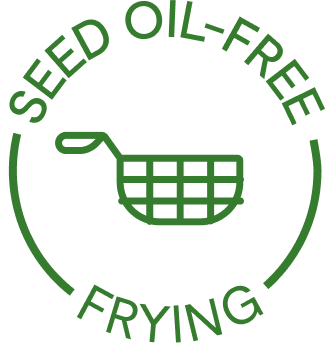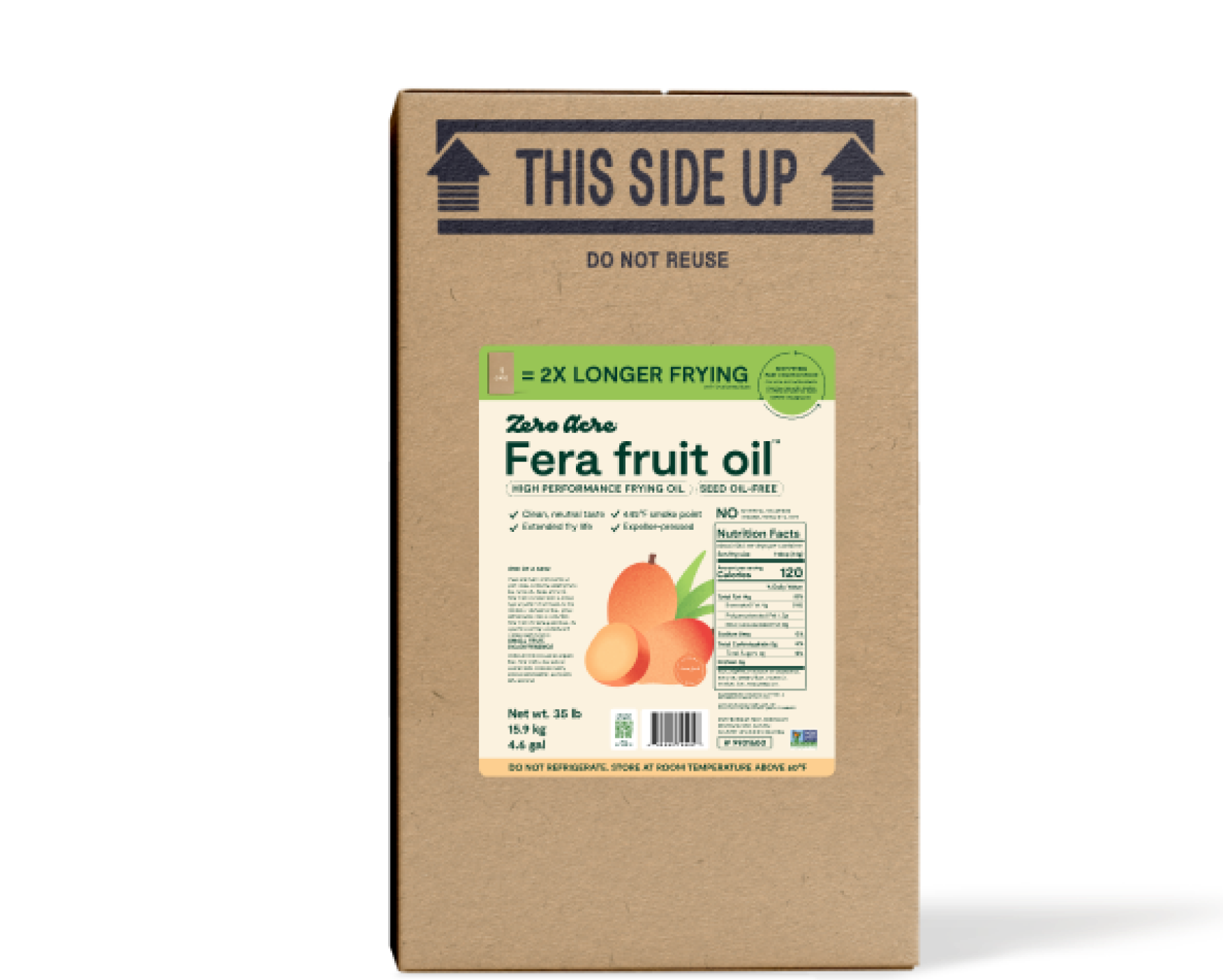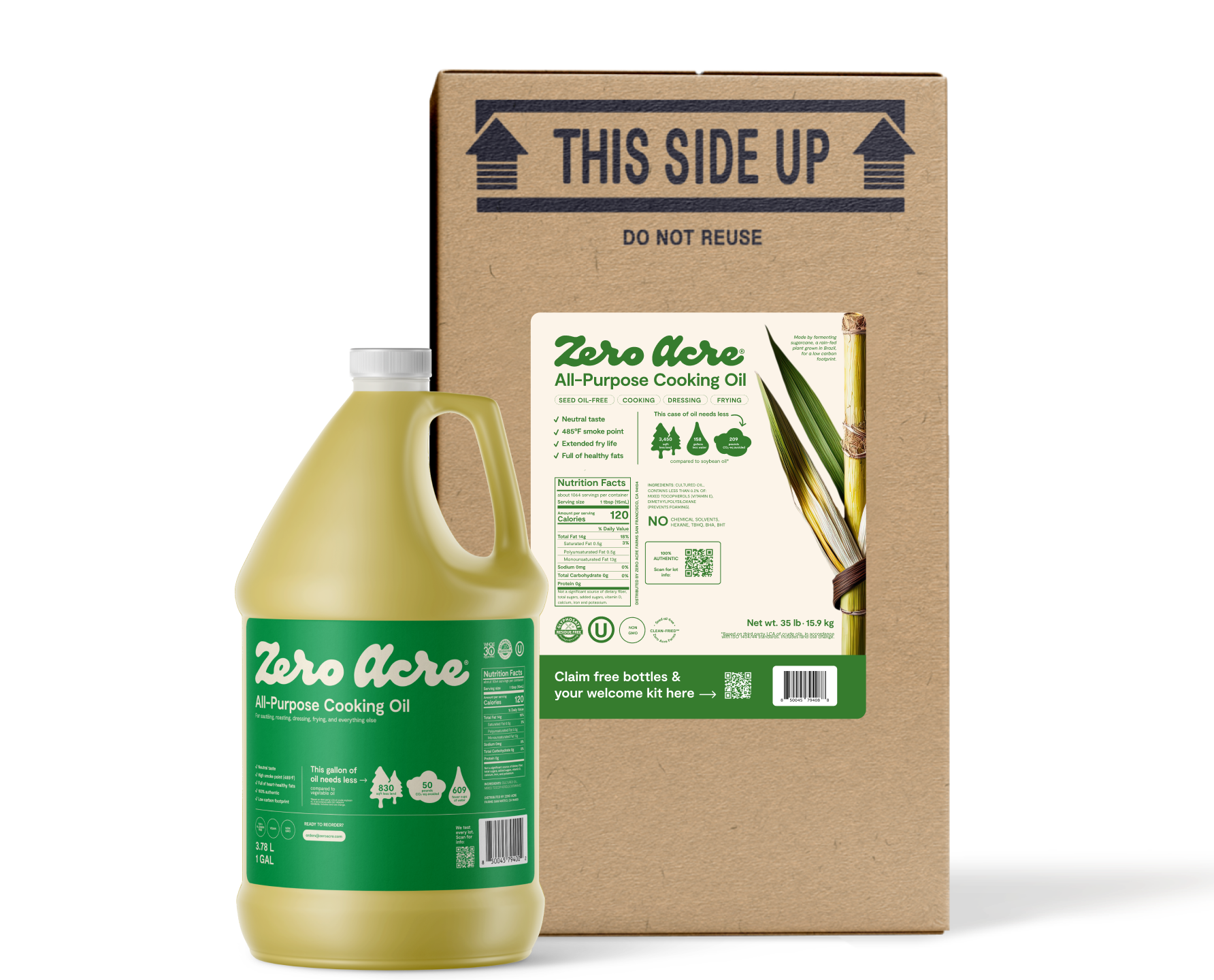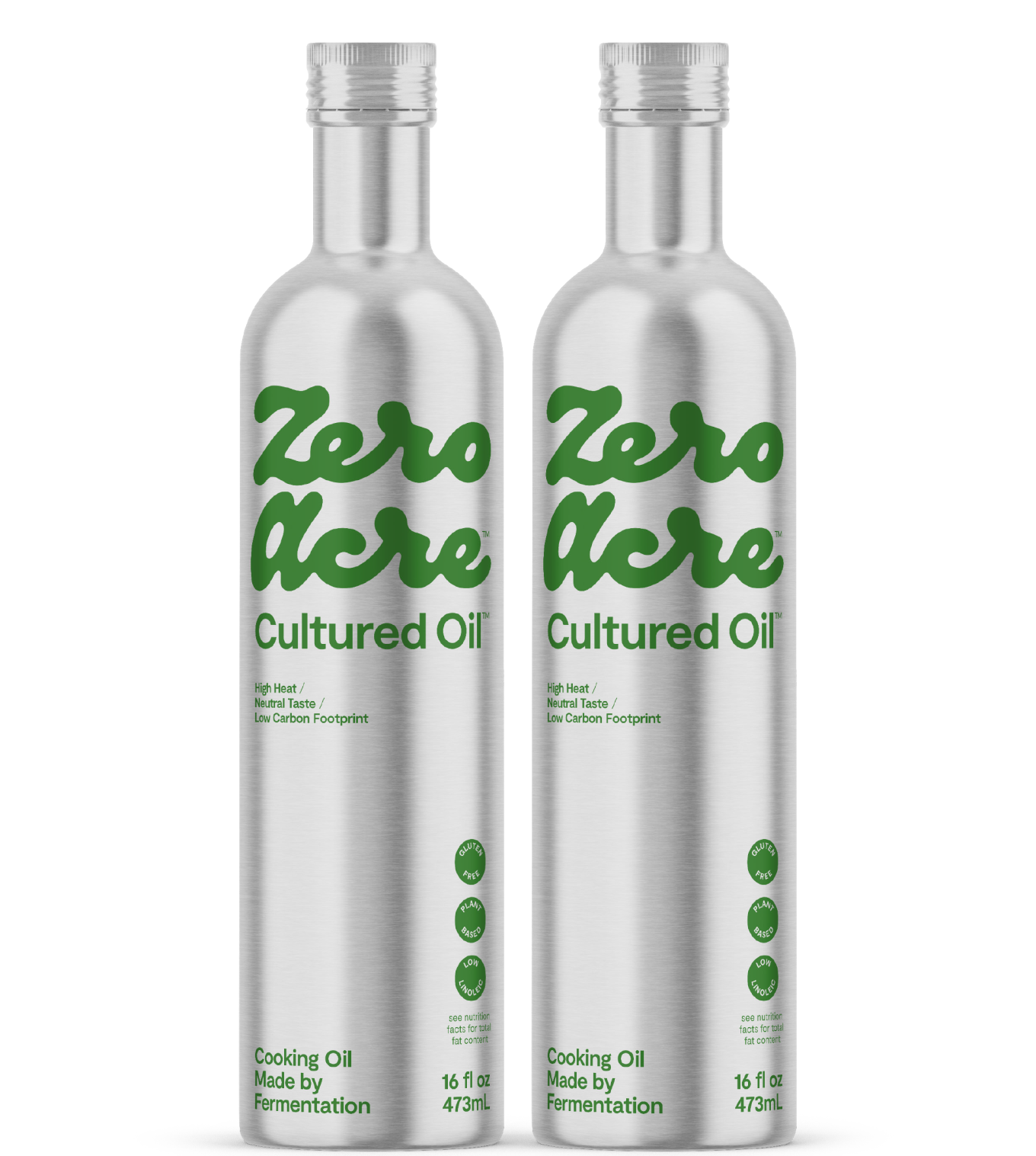WRITTEN BY: Zero Acre

"Twenty years ago, there weren’t a lot of restaurants focused on sourcing locally, sourcing thoughtfully, or sourcing seasonally.” Chef Lisa Lofberg of Little Moss has pioneered a locally-driven and elevated culinary program on the southeastern shore of Massachusetts.
Before mustard greens and baby kale became grocery store staples, Lisa was finding ways to highlight unique provisions grown in the area. Little Moss was born out of the desire to have an accessible restaurant that brings the region’s bountiful resources to the plate.
“What I’m really interested in and what really inspired us to open this restaurant and embark on this journey is the real connection with food and place and community.”
— Chef Lisa Lofberg, Head Chef at Little Moss

What inspired you to become a chef?
I've always loved cooking and I cooked a lot growing up. My mom was an amazing home chef. Where we live in Massachusetts is called the coast because there are so many farms around in this area on the Southeastern shore. There are incredible farmers here doing incredible things. Ironically, there are not a lot of restaurants in this area, so my husband and I thought “there are no good restaurants around here.” Then, ironically, a business that had been around for a while had gone up for sale, so we spontaneously bought it.
That’s what inspired me to become a chef… the desire to showcase what these local farmers were doing on a broader scale than just selling at a farmstand. Some of them were driving produce up to Boston and selling to high-end restaurants but that’s over an hour away from us. So, the real inspiration was, “why couldn’t you sell to restaurants around here?”
How do you describe your cooking philosophy and how that integrates into the Little Moss menu?
I love cooking with the seasons and working with the ingredients that are available during different times of the year. Around here on the Southeastern shore of MA, I feel like there are eight seasons. Each season has a first half and a second half, so there's a lot of changing produce, which influences changes on my menu based on the available ingredients.

What’s your favorite ingredient and favorite cooking tool to work with?
My favorite ingredient is probably an onion because they’re so versatile, and we use them in so many different ways. My favorite cooking tool is the Vitamix, which is the tool I use the most. We also have a little charcoal grill that we don’t use all the time, but it’s really fun to play with and use for special occasions.
Any culinary heroes?
One of my biggest culinary heroes is David Leibowitz, who was a pastry chef at Chez Panisse and also Judy Rodgers at Zuni Café. I’ve read their cookbooks over the years and admire their work.

What’s your favorite recipe on the menu that incorporates Zero Acre oil?
I’d say our onion mayo is my favorite item on the menu. We fry the onions in Zero Acre oil and then we mix the mayo with the fried onions and oil, so it really incorporates Zero Acre oil in two different ways.
First, we fry the onions in Zero Acre oil and the result is these really beautiful brown crispy onions. Second, we save the oil, which has a wonderful onion flavor and then we make an aioli with that onion oil so we have two products from the recipe: the crispy onions and the onion aioli.
We use the oil and aioli for different things, but the primary menu item that we use the aioli for is our burger, which is the backbone of our menu.
Our French fries are very labor-intensive; they are also cooked in Zero Acre oil. We aim to create a platonic ideal of a burger, what we consider to be the best possible burger we can imagine. Zero Acre has helped in that process. The fries are amazing. They’re super crispy and beautifully golden brown. We triple-fry the French fries, and it’s a three-day process.
We also use the oil in salad dressings. We use a combination of olive oil and Zero Acre. We also make several different mayonnaises and sauces with this oil as the base.
It also helps us make our granola. Normally, I use olive oil in my standard granola recipe but we tried it with Zero Acre oil and it’s really good. It comes out crispy and light-tasting and more neutral in flavor. We also use it in cakes occasionally.
We use the savory granola as a topping on salads and roasted vegetables. We’ve also made some sweet granola for desserts like our homemade ice cream, because we like to have different crunchy toppings.
Any advice for chefs starting their culinary journey?
Try to work in a few different restaurants that you admire to experience what your career path looks like.

What excites you about the future of your industry?
What I’m really interested in, and what really inspired us to open this restaurant and embark on this journey, is the real connection with food, place, and community. Twenty years ago, there weren’t a lot of restaurants focused on sourcing locally, sourcing thoughtfully, and sourcing seasonally. I think that just seems to be a trend that’s growing now.
Every year, people who are entering the restaurant industry are doing so because they are concerned for our food systems. They understand that food actually tastes better and is healthier for you, but it's also better for the community if you're supporting local farmers who provide nourishing, healthy food to the whole community. Then, the restaurant becomes a showcase for that.
I’m excited and optimistic that the trend will continue because people do notice the difference. And I think customers are more educated now. I remember when we first opened, I was sourcing some local mixed greens that were an interesting blend of mustards and baby kale, and I thought it was delicious, but diners were asking for just regular lettuce. But now, nobody wants regular lettuce; they want the cool, beautiful, delicious mixed greens.
Best kitchen hacks?
We dehydrate mushrooms and use them for nice stocks. We also use stems from herbs and put them into vinegar to infuse. You could leave them in there for a few weeks, and then, depending on the herbs (as some take longer than others), strain them out after a month or so. The vinegar is then beautifully flavored. Sometimes it’s a mix of herbs. We use white wine vinegar, which sometimes we make in-house using our leftover white wine.
Photo credit: Photos by Kate Foster and John Hesselbarth
Visit Little Moss and follow @littlemossrestaurant
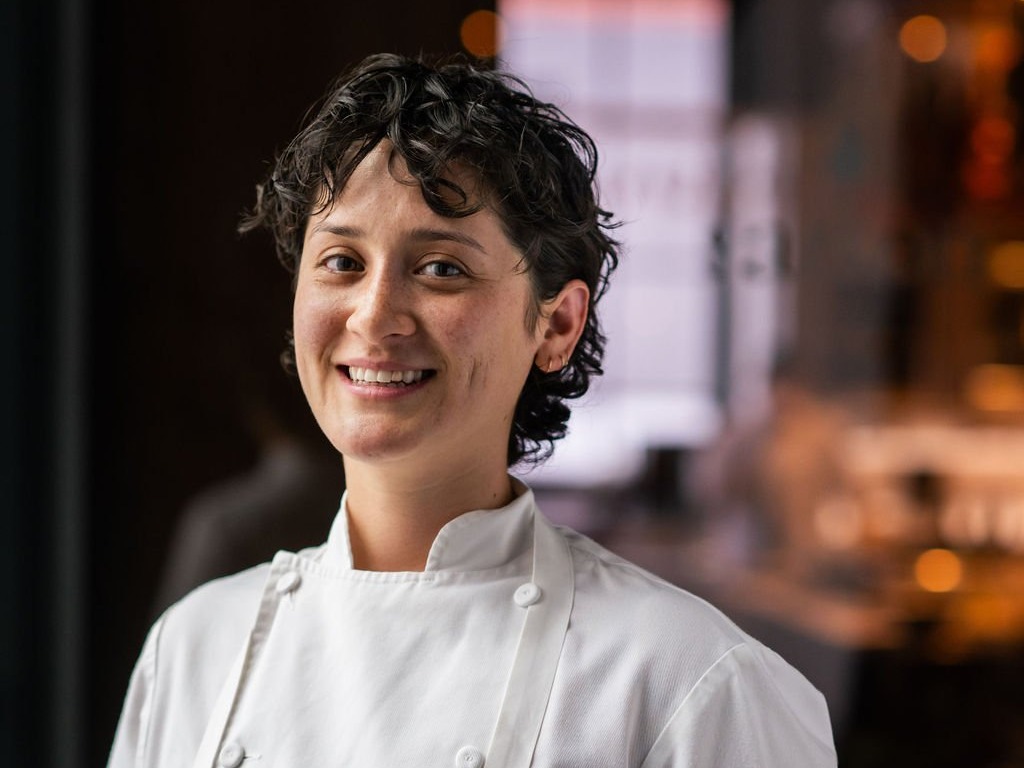
Raising the bar with Chef Alek Zito, Chef de Cuisine of Saison
Pioneering Chef Alek Zito has risen to Chef de Cuisine at the two Michelin-starred restaurant Saison in San Francisco, leading their Foraging and Fermentation Program, reducing food waste, and more.
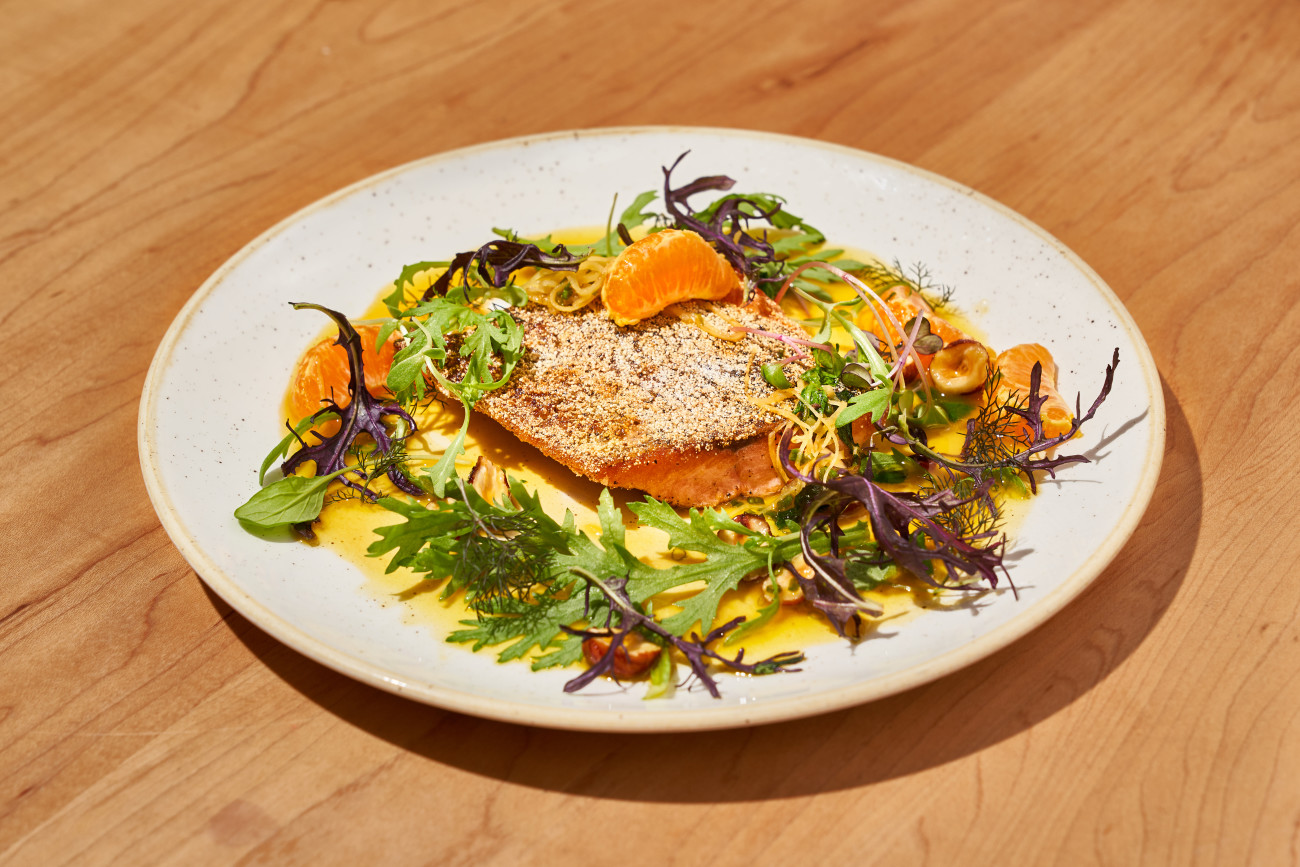
Rice-Crusted Trout with Garum, Brown Butter, Hazelnuts, and Mandarin Oranges
Chef Brioza shares his signature Rice-Crusted Trout dish designed for you to savor in the comfort of your own home.
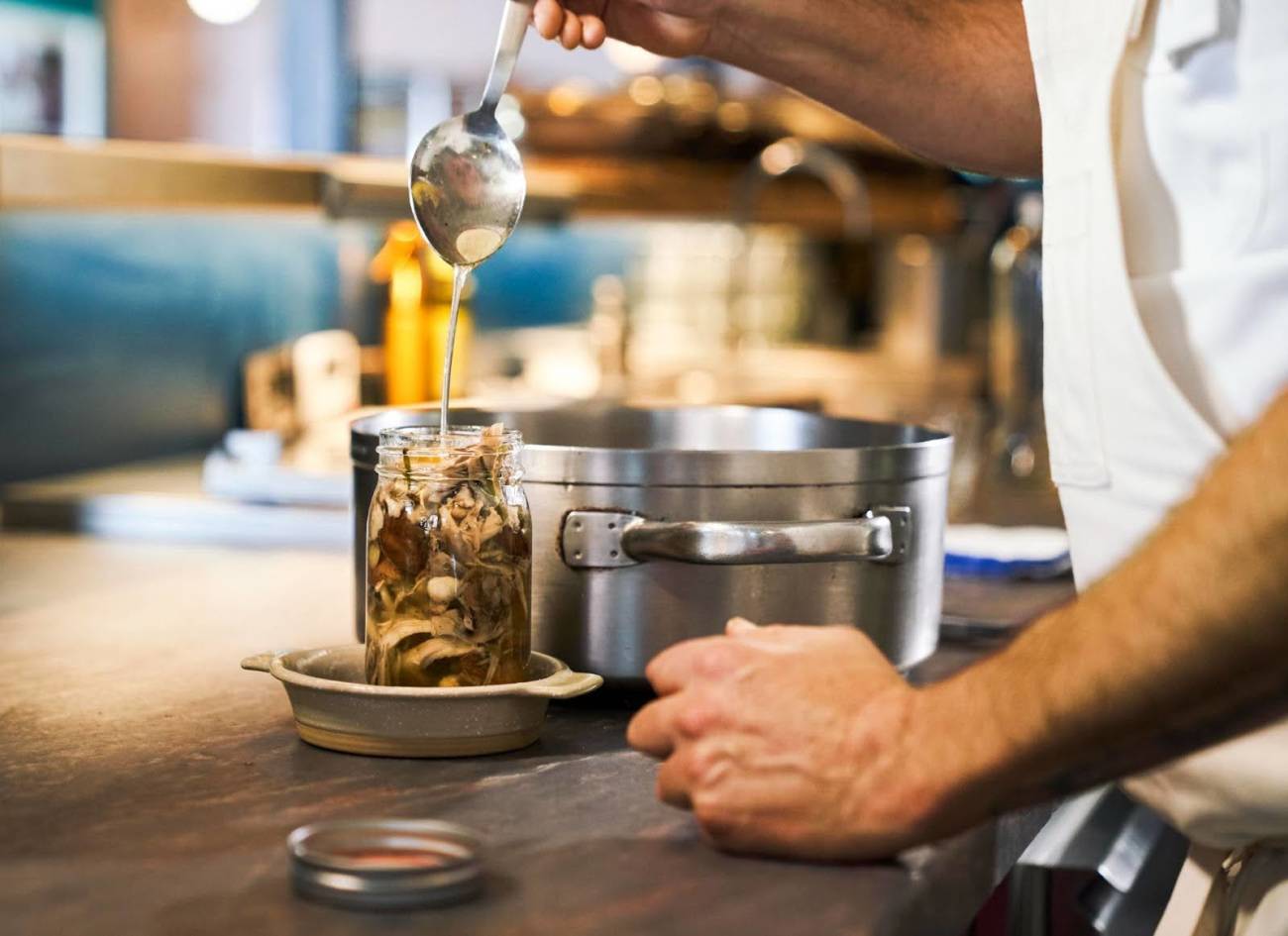
Mushroom Conserva
Straight from the Michelin-starred kitchen to your home, Chef Stuart Brioza of State Bird Provisions shares his process for preparing mushroom conserva.

